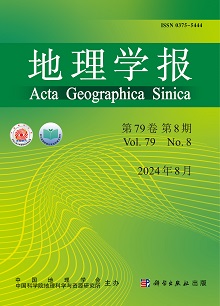The Influence of Climate and Hydrological Factors on the Phenological Characteristics of Populus euphratica in the Oasis of the Central Taklamakan Desert
Liu, Yulong , Wang, Zhi , Li, Dinghao , Wan, Yanbo , Shi, Qingdong
2025-03-02 null null 16(卷), null(期), (null页)
The phenological characteristics of plants can reflect both their responses to environmental changes as well as an ecosystem's sensitivity to climate change. Although there have been several phenological studies of plant species worldwide, there is minimal research on the phenology of vegetation found in extremely arid environments within the context of climate change. To address this research gap, this study investigated the effects of climate-hydrological factors, including temperature, precipitation, surface temperature, and surface humidity, on the phenological characteristics (start of the growing season [SOS] and end of the growing season [EOS]) of Populus euphratica in the Tarim Desert Oasis. Using Landsat 7/8 satellite imagery and field data, we analyzed the spatial and temporal variations in the SOS and EOS from 2004 to 2023. The availability of water, particularly changes in groundwater depth and surface water, directly played a key role in shaping the spatial distribution and temporal dynamics of P. euphratica phenology. The impact of increasing temperatures on P. euphratica phenology varied under different moisture conditions: in high-moisture environments, increased temperatures promoted earlier SOS and delayed EOS, with the opposite conditions occurring in low-moisture environments. This study highlights the profound influence of moisture conditions on P. euphratica phenology in the context of climate change, especially in extreme arid regions. To accurately predict the response of P. euphratica phenology to climate change, future ecological models should incorporate hydrological factors, particularly changes in soil moisture, in cold and dry regions. These findings provide important insights for developing effective ecological protection and management strategies.
相关推荐
- Water-use characteristics of Populus euphratica trees in response to flood and groundwater depth in desert oasis [2025-03-02]
- Mapping Natural Populus euphratica Forests in the Mainstream of the Tarim River Using Spaceborne Imagery and Google Earth Engine [2025-03-02]
- Effects of meteorological factors and groundwater depths on sap flow density of Populus euphratica in a desert oasis, Taklamakan Desert, China [2025-03-02]
- The combined effect of surface water and groundwater on environmental heterogeneity reveals the basis of beta diversity pattern in desert oasis communities [2025-03-02]
- Influence of Surface Water on Desert Vegetation Expansion at the Landscape Scale: A Case Study of the Daliyabuyi Oasis, Taklamakan Desert [2025-03-02]



